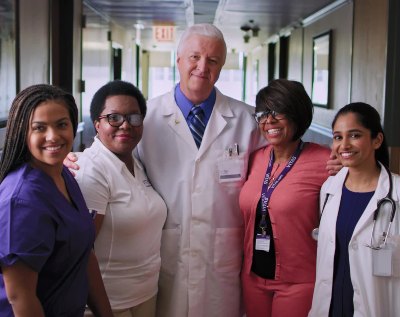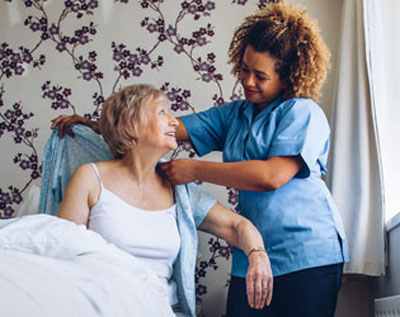Why We Work in Hospice: Admission Liaison Carole Quackenbush
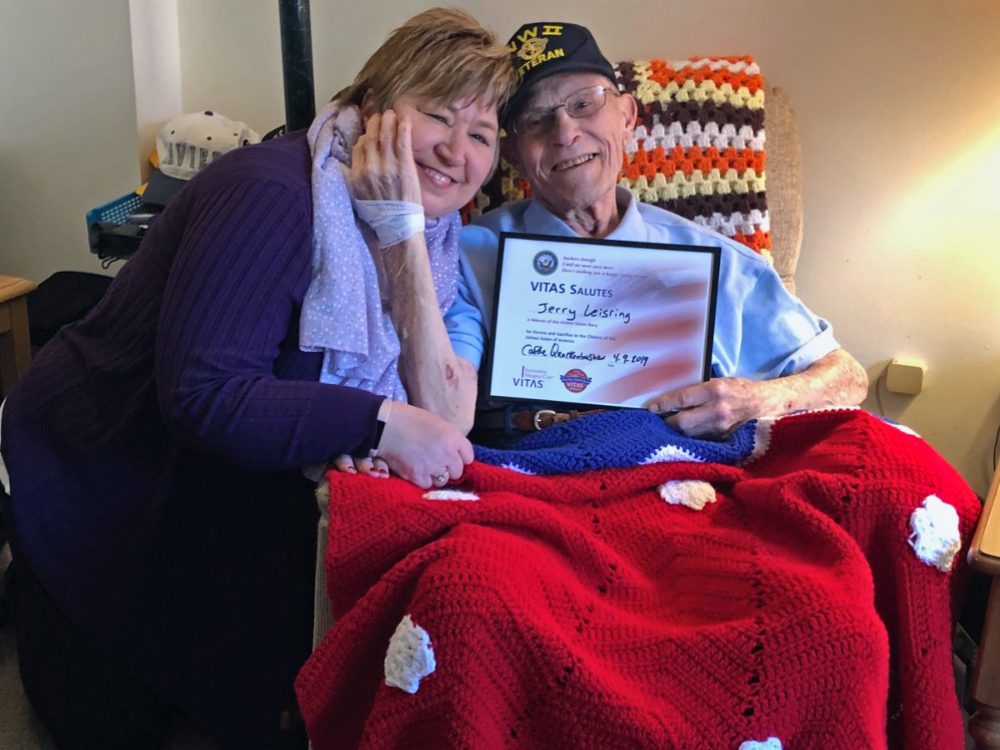
VITAS Admission Liaison Carole Quackenbush presented WWII Navy veteran and VITAS patient Jerry Leisring with a specially made blanket, crafted by VITAS volunteers, in recognition of his service.
Hospice is built on a simple premise: that every person is entitled to quality of life at the end of life, to comfort and dignity despite proximity to death.
At VITAS Healthcare, that premise permeates every aspect of the organization. But ensuring it is carried out to fruition requires the acknowledgement that certain populations face unique barriers to accessing end-of-life care and unique end-of-life experiences.
Whether due to lack of hospice outreach, concerns of rejection or mistrust in healthcare institutions, many populations struggle to access end-of-life care; these can include people of color, patients who identify as LGBTQ or those who are impacted by poverty. VITAS employs specialized admissions personnel who have insight into these marginalized communities (and are often members of them as well) to maximize access to hospice.
‘I Take my Role Very Seriously’
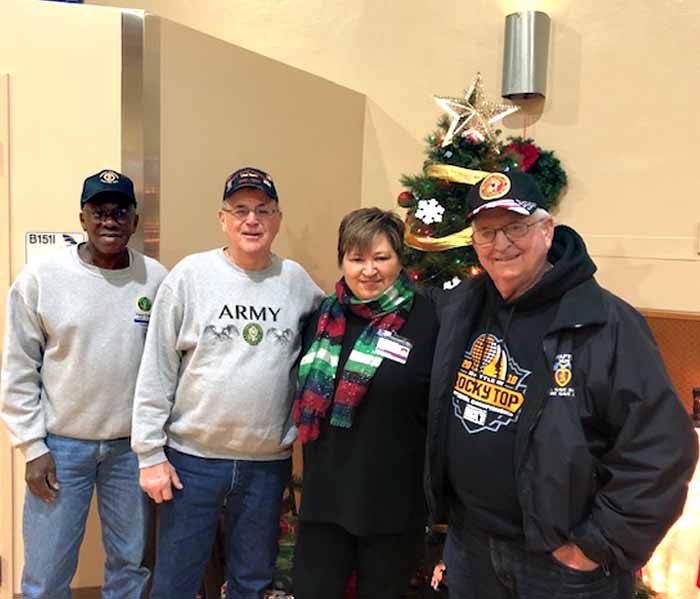
Carole Quackenbush helped bring an early dose of Christmas to the veterans at the Cincinnati VA during the annual Christmas Volunteer Evening.
VITAS Admission Liaison Carole Quackenbush specializes in outreach to US military veterans. Acting as a “veteran liaison” for VITAS in Cincinnati, Ohio, Carole helps vets get every benefit to which they’re entitled and ensures they feel valued at the end of life.
“As a VITAS veteran liaison, I take my role very seriously: to honor every veteran we are lucky enough to meet and care for,” Carole says. “Every veteran’s military service is important and deserves honor and recognition.”
Resource: What to Say to a Veteran
Sometimes that means accompanying vets on Honor Flights to visit the Washington, DC, war memorials established in their honor. Other times, it means issuing pins and challenge coins during commemorative ceremonies or bedside salutes. Sometimes it involves overseeing a flag-folding for a bereaved spouse.
Often, it just means listening when no one else will.
An ‘Army Daughter’ Finds her Calling
To Carole, these responsibilities are more than her career–they’re her calling.
Carole’s upbringing as an “Army daughter” gave her plenty of insight into the needs, perspectives and lifestyles of military personnel. It also imbued her with a deep-seated respect for their contributions and a burning desire to give back. Working in hospice gave her the opportunity to fulfill that desire, but VITAS gave her the resources and support to make it happen.
“[VITAS is] ahead of the game in understanding the importance of reaching out to veterans and touching their families,” Carole says. “Most people forget that there’s still a war going on, and our military personnel are serving five, six, seven deployments.”
‘VITAS Will Be There for Them’
“We will have an increasing number of veterans and families to take care of,” Carole continues. “Veterans’ needs are changing, they will face more psychosocial issues than even today, and VITAS will be there for them.”
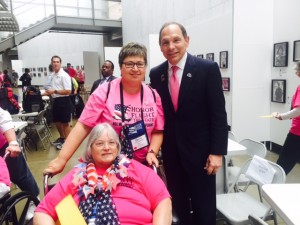
Quackenbush with then-VA Secretary Bob McDonald and Donna Cunagin at the first all-female Honor Flight.
Carole understands the challenges and rewards of a growing patient population. When she joined VITAS in 1993 as a hospice team manager in Cincinnati, VITAS was new to the city, with a patient census of only 40-50. Then VITAS merged with Comfort Care Holdings, and nearly overnight, Carole found herself with 500 patients in need of care.
Carole left VITAS in 1997 and returned in 2006 as an admission liaison. Today her work takes her throughout Ohio–and occasionally to the nation’s capital–as she connects veterans with hospice services, plans and hosts memorial events, educates caregivers and referral sources on veterans’ unique needs, and coordinates veterans’ programs throughout the communities VITAS serves.
“The friendships and relationships I have been able to make with our veteran community have continued to help serve, honor and educate so many of our patients, staff and community partners,” Carole says. “I’m proud to work for an organization with a goal of ensuring the service of American heroes is never forgotten.”
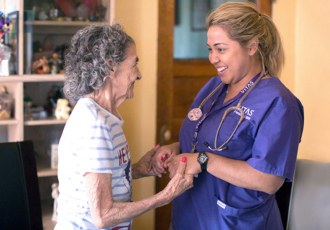
Choose a Career with VITAS
We offer a variety of full-time, part-time and per-diem employment opportunities. Employees earn competitive salaries and have the flexibility to choose a benefits package suitable to their own needs and lifestyle.
See Current Opportunities